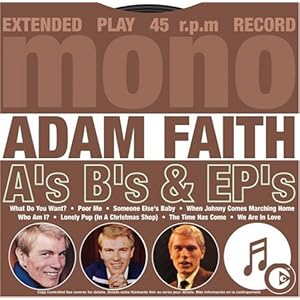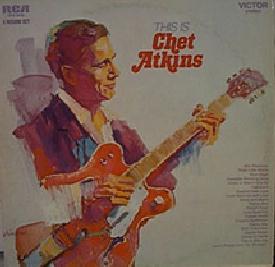
I found the Temptations’
Anthology at Sam The Record Man. It was a triple LP with a classy white cover, cut at the corners, with nice pics, and a selection of tracks from their first major hit through the early 70s. I learned later that it was part of a series featuring all the major Motown artists, and over a few years I picked them up one by one. (Stevie Wonder’s entry was called
Looking Back, presumably named for the lyrics in I Wish, but otherwise if fits the motif). Motown had a number of collection series over the decades, and I don’t know if the vinyl edition of the
Anthology series is the best (there is a CD Anthology series, which is an outgrowth of the vinyl, but it’s not as cool), but it’s certainly the classiest.
Some were double LPs, some were triple, some had booklets. Not all Motown artists merited an Anthology; Mary Wells, The Isley Brothers, The Contours, David Ruffin, Jimmy Ruffin, Brenda Holloway, Edwin Starr – some who did not have the honour.
The Miracles’
Anthology (they were The Miracles until 1967, at which time they became Smokey Robinson & The Miracles; when Smokey left in 1973 they reverted to being The Miracles) is a good representation of their Smokey era career – all of the top 40 hits are present, as are a good sampling of the rest of their top 100 hits. I didn’t hear most of these songs growing up; for some reason Motown records didn’t get played as much as one would expect on our local top 40 station, though the songs showed up on the charts well enough; it was only from about 1967 on that they got fair play. I don’t know why that is.
I’ve made up for though, on my own time, since…
The Miracles:
•
Got A Job – An answer song to The Silhouettes’ Get A Job, it’s not bad, but, as Dave Marsh and Kevin Stein point out in
The Book Of Rock Lists, it doesn’t capture the “marvelous incoherence” of the original. In the end it becomes a kind of Yackety Yak with the boss standing in as the parent. An inauspicious beginning.
•
Bad Girl – I suppose the concept of the “bad girl” isn’t all that current; Donna Summer revived it for a while but that was a whole different thing. Meanwhile Smokey is all over the map – she is not a bad girl because… she is a bad girl because… Life is sure complicated. The Miracles' first hit, if hit it can be called, and it would have been the first Tamla single to make the top 100, except that Berry Gordy licensed it to Chess. It was on the hit parade in the fall of 1959.
•
Way Over There – Echoes of The Impressions. This seems to have been recorded after Bad Girl, but it didn’t appear on a single until the fall of 1962.
•
(You Can) Depend On Me – This ballad echoes earlier R&B hits by The Moonglows and even The Harptones. The guys (and Claudette) are right up there.
•
Shop Around –Smokey’s ode to non-commitment (he blames his mother, but don’t we all), was Motown’s (Tamla’s really, but same difference) first record to reach the top 10. The rest is history. That was in the winter of 1961. It was a hit again for The Captain & Tennille in 1976.
•
Who’s Lovin’ You – This song about a relationship gone bad is irresistible, typical early Smokey, and it’s odd that it wasn’t on the top 100. The Jackson Five covered it on their first album.
•
What’s So Good About Goodbye – And how can farewell be fair? Here is where Smokey’s incredible wordplay starts. From the winter of 1962.
•
I’ll Try Something New – The harp at the beginning tells us that this is magic. And then Smokey starts singing about building towers to the moon, and the swirling strings tell us that it’s serious magic. But for all the magic that it is, it only just snuck into the top 40 in the summer of 1962.
•
I’ve Been Good To You – When being good isn’t enough …
•
You’ve Really Got A Hold On Me – What might be just another love song is really about dysfunction, about that kind of abusive relationship that you can’t let go of. “You treat me badly,” he sings, “I love you madly.” Go figure. This is so off centre that when the Beatles covered it on their second album, John and George sang harmony on the verses, Paul only joining them on the choruses. The Zombies covered this as well. So did Sonny & Cher. From the winter of 1963.
•
A Love She Can Count On – The opening chord sequence is almost You’ve Really Got A Hold On Me redux. Almost. We’re back in safe territory here, and it shows in the results. The former reached the top 10; this made number 31. That was the spring of 1961.
•
Mickey’s Monkey – The group gets into a dance groove. This was contemporary with The Monkey Time by Major Lance, fall of 1963.
•
I Gotta Dance To Keep From Crying – Trying to bury the sorrow under celebration. Not likely to work, but certainly worth a try. From the winter of 1964.
•
I Like It Like That – Not the Chris Kenner song. From the summer of 1964.
•
That’s What Love Is Made Of – Smokey takes the nursery rhyme about boys and girls and snakes and snails and that kind of thing and made a record that was a top 40 hit in the fall of 1964. It’s that slinky rhythm that gets you.
•
Come On Do The Jerk – Back into the dance groove. A hit in the winter of 1965, it beat The Larks’ The Jerk by a few months.
•
Ooh Baby Baby – Here’s where Smokey gets heavy into ballad mode. The title is the epitome of meaningless, but that changes when you start listening. Linda Ronstadt put this back on the chart in the late 70s. From the spring of 1965.
•
The Tracks Of My Tears – A candidate for the best Miracles record ever, possibly for the best Smokey Robinson song. I remember the Johnny Rivers hit version from a few years later; it was only as an adult that I discovered the original, which is surprising, because the song was a hit in the summer of 1965, and I was fully tuned in by then. This record, whose stature in the history of rock and soul is huge, only went to number 16 on Billboard, which is as good an indication as any of the irrelevance of chart positions.
•
My Girl Has Gone – A heartbreak song in the form of a pep talk. “Don’t give up” he reminds himself, “hold your head up high.” From the fall of 1965.
•
Choosey Beggar – Describing oneself as a “beggar” for love isn’t going to endear you to anyone – unless you’re Smokey Robinson.
•
Going To A Go-Go – The drum lead in on this may be the most dramatic intro to any of their records, and it leads to a celebration of the 60s pre-hippie rock and roll dance culture. From the winter of 1966. The Stones covered this on Still Life.
•
(Come ‘Round Here) I’m The One You Need – “I may not be the one you want” he sings candidly, in what may be the least romantic come-on in all of pop music. The breathy spoken part is odd, but if it worked for Diana Ross on Love Is Here And Now You’ve Gone then why not. From the winter of 1966 / 1967.
•
Save Me – The idea of Love as Salvation wasn’t new, but nobody said it like Smokey.
Smokey Robinson & The Miracles:
•
The Love I Saw In You Was Just A Mirage – A song about how infatuation doesn’t always lead to the real thing. From the spring of 1967.
•
More Love – A song of undying love as only Smokey can do.
•
I Second That Emotion – One of the most enduring of Smokey’s hits, bouncier than most, and as clever as he got. From the winter of 1967 / 1968.
•
If You Can Want – The bounce of I Second That Emotion but not so playful, and with a dark undercurrent provided by the horns. From the spring of 1968.
•
Yester Love – Not to take anything away from Smokey, but it was Stevie Wonder who took this idea and scored the goal, with Yester-Me, Yester-You, Yesterday. This is from the spring of 1968.
•
Special Occasion – For Smokey, this was a bit of funk. For anyone else, it would have been Adult Contemporary. From the fall of 1968.
•
Baby Baby Don’t Cry – A ballad, no question. What happens when you pick the wrong guy. From the winter of 1969.
•
Doggone Right – From the summer of 1969.
•
Here I Go Again – The B side of Doggone Right, from the fall of 1969. This is what The Stylistics would sound like a few years hence.
•
Abraham, Martin, And John – This tribute to assassinated American heroes was a hit originally for Dion in the latter part of 1968. During the following year both Smokey Robinson & The Miracles and Moms Mabley had a crack at it. For my money, I’ll take Dion. From the summer of 1969.
•
Darling Dear- From the spring of 1970. The definition of smooth soul. The B side of Point It Out.
•
Point It Out – From the winter of 1970
•
Who’s Gonna Take The Blame – A song of co-dependency. From the summer of 1970.
•
Tears Of A Clown – I didn’t like this song when I was 13 years old, and I didn’t hesitate to tell Sharon B. who sat in front of me, and with whom I was having a in-depth conversation about top 40 radio. Not only did she like Tears Of A Clown, but waxed eloquent over Be My Baby by Andy Kim. I was partial to Paranoid by Black Sabbath. Now I’m older.
This is the song that finally put Smokey and the boys at number 1. The lyrics are Tracks Of My Tears revisited, but it sounds fresh and new for all that. From the fall / winter of 1970.
•
I Don’t Blame You At All – A breakup song with a twist. From the spring of 1970.
•
Satisfaction – Not The Rolling Stones, but pretty much about the same subject, but from the opposite angle. (Too many buts, I know.) From late 1971.
•
We’ve Come Too Far To End It Now – Sure, so many years, so many kids, and boom! up in smoke. From the summer of 1972.
•
I Can’t Stand To See You Cry – This is how it ends, with a mighty whimper. From the winter of 1973.

 The Beatles put England on the musical map. But The Beatles did not invent UK pop. In fact, prior to Love Me Do those royal isles were a hotbed of Bobby Vee wannabes. Cliff Richard was king, but there was also Johnny Kidd & The Pirates, Emile Ford & The Checkmates, The Tornadoes, Dicke Valentine, Russ Hamilton etc etc. I would love to tell you that a treasure chest of unknown delight awaits he who ventures to explore this underappreciated genre, but I’d be lying. Most of it is pretty lame.
The Beatles put England on the musical map. But The Beatles did not invent UK pop. In fact, prior to Love Me Do those royal isles were a hotbed of Bobby Vee wannabes. Cliff Richard was king, but there was also Johnny Kidd & The Pirates, Emile Ford & The Checkmates, The Tornadoes, Dicke Valentine, Russ Hamilton etc etc. I would love to tell you that a treasure chest of unknown delight awaits he who ventures to explore this underappreciated genre, but I’d be lying. Most of it is pretty lame. The gentleman that ran Sound Exchange had a way of keeping a constant high quality inventory. The trick was that the prices of the records were so high that nobody ever bought them. I certainly never bought any LPs there. Well, no, that’s not true. I bought a Moby Grape LP. I think it was $20. Maybe a zero got left out by mistake.
The gentleman that ran Sound Exchange had a way of keeping a constant high quality inventory. The trick was that the prices of the records were so high that nobody ever bought them. I certainly never bought any LPs there. Well, no, that’s not true. I bought a Moby Grape LP. I think it was $20. Maybe a zero got left out by mistake. I got The CHUM Chart Book from a mail order catalogue. That was sometime around 1985. CHUM was a Toronto radio station, so what’s listed on their radio playlists reflects the pop charts with a Canadian twist. The Canadian music scene in the 60s was very regional, so it’s not to be taken as a reflection of Canada as a whole in every case, but it’s a window into the world of Canadian top 40 radio.
I got The CHUM Chart Book from a mail order catalogue. That was sometime around 1985. CHUM was a Toronto radio station, so what’s listed on their radio playlists reflects the pop charts with a Canadian twist. The Canadian music scene in the 60s was very regional, so it’s not to be taken as a reflection of Canada as a whole in every case, but it’s a window into the world of Canadian top 40 radio. • I Cover The Waterfront – A hit for The Ink Spots
• I Cover The Waterfront – A hit for The Ink Spots Every so often at the library or at some second-hand store I’d find a cassette called Favourite Pop Hits Of The 60s or some such thing, and I wouldn’t recognize a single song. Upon further investigation I’d learn that all the songs had been hits over in the UK. It was on one of those collections that I found Dickie Valentine.
Every so often at the library or at some second-hand store I’d find a cassette called Favourite Pop Hits Of The 60s or some such thing, and I wouldn’t recognize a single song. Upon further investigation I’d learn that all the songs had been hits over in the UK. It was on one of those collections that I found Dickie Valentine. Harry and Eli were partners. Harry was good natured but high-strung and somewhat neurotic; Eli was good natured but had a harder edge; though his personal style was more laid back. In his early adult days he was rumoured to have been a country music disc jockey in northern Manitoba. I worked for those guys from 1988 until 1991.
Harry and Eli were partners. Harry was good natured but high-strung and somewhat neurotic; Eli was good natured but had a harder edge; though his personal style was more laid back. In his early adult days he was rumoured to have been a country music disc jockey in northern Manitoba. I worked for those guys from 1988 until 1991. I found the Temptations’ Anthology at Sam The Record Man. It was a triple LP with a classy white cover, cut at the corners, with nice pics, and a selection of tracks from their first major hit through the early 70s. I learned later that it was part of a series featuring all the major Motown artists, and over a few years I picked them up one by one. (Stevie Wonder’s entry was called Looking Back, presumably named for the lyrics in I Wish, but otherwise if fits the motif). Motown had a number of collection series over the decades, and I don’t know if the vinyl edition of the Anthology series is the best (there is a CD Anthology series, which is an outgrowth of the vinyl, but it’s not as cool), but it’s certainly the classiest.
I found the Temptations’ Anthology at Sam The Record Man. It was a triple LP with a classy white cover, cut at the corners, with nice pics, and a selection of tracks from their first major hit through the early 70s. I learned later that it was part of a series featuring all the major Motown artists, and over a few years I picked them up one by one. (Stevie Wonder’s entry was called Looking Back, presumably named for the lyrics in I Wish, but otherwise if fits the motif). Motown had a number of collection series over the decades, and I don’t know if the vinyl edition of the Anthology series is the best (there is a CD Anthology series, which is an outgrowth of the vinyl, but it’s not as cool), but it’s certainly the classiest.
